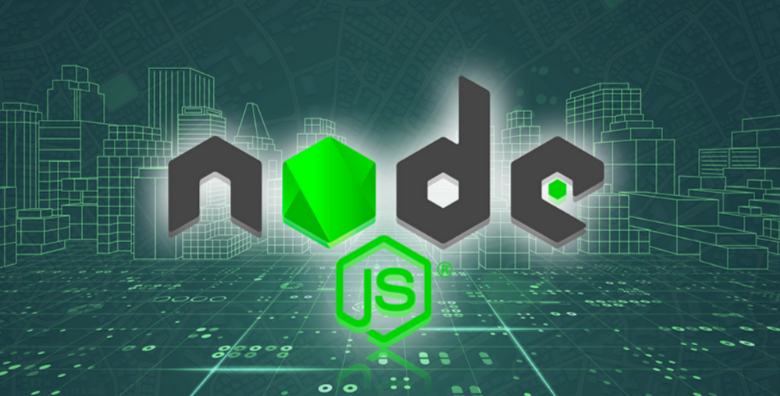What’s Inside a Node.js VPS Environment and Why Developers Love It?

Node.js has become a cornerstone of modern web development, favored for its speed, scalability, and ability to use a single language (JavaScript) across the entire stack. Yet, the raw power of the Node.js runtime is maximized only when hosted in a perfectly tailored environment. A VPS for node.js is not just a server; it is a meticulously configured ecosystem that provides developers with the specific tools, control, and performance necessary to build and deploy applications without friction. This tailored environment is precisely why developers worldwide have adopted it as their go-to hosting solution.
What core components make up the optimized Node.js VPS environment?
The appeal of a Node.js VPS lies in the freedom to configure the exact software stack needed for a complex application. A typical optimized environment includes several key components, all managed with full root access:
- Optimized Linux OS: Usually a lightweight distribution like Ubuntu or CentOS, specifically tuned to host the Node.js runtime and minimize resource overhead.
- Node.js Runtime: The official V8-powered Node.js runtime is installed, often via a version manager like nvm (Node Version Manager), allowing the developer to easily switch between different Node.js versions for different projects or testing.
- Process Manager (PM2): Essential for production. PM2 manages the Node.js application’s lifecycle, ensuring it automatically restarts on crashes, provides logging, and, most importantly, allows the single-threaded Node.js app to utilize multiple CPU cores through clustering.
- Reverse Proxy (NGINX/Apache): A fast reverse proxy (like NGINX) is installed to sit in front of the Node.js application. It handles tasks like static file serving, SSL termination, and basic load balancing, leaving Node.js free to focus solely on dynamic application logic.
This specific, controlled layering of software is what guarantees maximum performance and stability for the Node.js application.
Why do developers value the administrative freedom (Root Access) of a Node.js VPS?
One of the greatest limitations of shared hosting is the lack of administrative freedom. Developers often hit roadblocks when trying to install custom libraries, set up necessary services, or configure security.
A Node.js VPS provides full root access (or administrative access), which is indispensable for modern development:
- Custom Dependency Installation: Developers can install specific database systems (e.g., MongoDB, Redis), specialized C++ libraries, or system-level dependencies required by their Node.js packages without restriction.
- Security Hardening: They have complete control over the firewall (iptables/ufw), SSH configurations, and security policies, allowing them to tailor the security posture precisely to the application’s needs.
- Performance Tuning: Root access allows for low-level tuning of the operating system’s kernel parameters and I/O settings, maximizing resource utilization for high-concurrency Node.js workloads.
This level of control ensures the hosting environment never limits the application’s potential. When looking to buy vps, developers are essentially buying this freedom.
How does the native support for npm and Yarn enhance the development workflow?
The Node.js ecosystem is powered by its vast package repository, accessed via package managers like npm (Node Package Manager) and Yarn. These tools are natively and fully supported on a Node.js VPS, unlike environments where dependency management can be restricted or complex.
This native support ensures:
- Easy Deployment Setup: The deployment script is simple: developers can transfer their code and run npm install directly on the VPS to resolve and download all dependencies instantly.
- Version Control: Using tools like nvm, developers can ensure the exact Node.js and package versions used in development are replicated in production, eliminating the dreaded “it works on my machine” scenario.
Conclusion
The appeal of the Node.js VPS environment lies in its optimization for the unique needs of the Node.js runtime. By combining the speed of dedicated resources, the essential process management of tools like PM2, and the foundational freedom of root access, it creates a stable, high-performance, and perfectly controlled ecosystem. For developers, this means faster deployments, easier debugging, and the confidence that their application will perform exactly as designed, making the Node.js VPS the ideal home for all their server-side JavaScript projects.
FAQ (Frequently Asked Questions)
What is the purpose of NGINX in a Node.js VPS setup?
Node.js itself is efficient at application logic but less so at serving static files (images, CSS, JavaScript). NGINX acts as a reverse proxy, taking incoming requests. If the request is for a static file, NGINX serves it directly and quickly. If it’s for application logic, NGINX forwards (proxies) it to the Node.js application, significantly boosting overall performance.
Can I host multiple, different Node.js applications on one VPS?
Yes. With the help of the NGINX reverse proxy, you can easily configure different domain names or subdomains to point to different ports on the VPS, each running a separate Node.js application managed by PM2. You can also use separate Node.js versions for each.
Why is it important to use a Process Manager like PM2?
The core reason is reliability. Node.js is single-threaded, meaning a single unhandled exception can crash the entire application. PM2 automatically detects the crash and restarts the process instantly, providing high availability. It also enables clustering to leverage multi-core processors.
How is a Node.js VPS better for application security than shared hosting?
On a VPS, your application’s process runs in an isolated environment. A vulnerability in another user’s application on the same physical machine cannot compromise your server. Furthermore, root access allows you to implement specific firewall rules and security protocols tailored only to your application’s needs, offering a much higher degree of control and protection.





